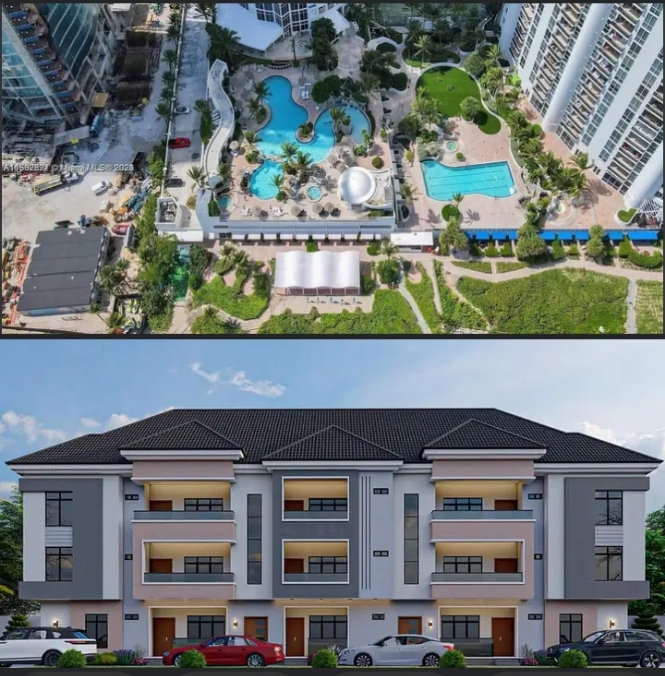Hotel vs. Residential Apartment Building: Which is a Better Investment in Nigeria?
As an architect and a major player in the building industry i have been seeing so many questions recently online about investment in Hotels or Residential apartments for rent which is a better investment. In the real estate business no investment is a bad investment, it all depends on location and management of the investment.
In Nigeria’s dynamic real estate market, investors often grapple with choosing between developing a hotel or residential apartment buildings for rent. Both options have the potential to yield significant returns, but their profitability depends on factors such as location, market demand, and investor objectives. The write up bellow explores the pros and cons of each option within the Nigerian context to help you make an informed decision.
HOTELS
Advantages
1. High Revenue Potential:Hotels typically generate daily income from room bookings, which can be more lucrative than monthly rent from residential apartments, especially in prime locations like Lagos, Abuja, and Port Harcourt.
2. Diverse Revenue Streams:In addition to room bookings, hotels can generate income from restaurants, event halls, bars, and spa services. This diversification reduces reliance on a single income source.
3. Tourism and Business Growth:Nigeria’s growing tourism industry and increasing demand for business travel make hotels a strategic investment in cities and tourist hubs.
4. Dynamic Pricing:Hotels can adjust prices based on demand, seasonal changes, and events, maximizing profitability during peak periods.
Disadvantages
1. High Initial Investment:Constructing and furnishing a hotel requires significant capital, particularly for facilities like conference rooms, swimming pools, and gyms.
2. Operational Costs:Hotels have higher operational costs, including salaries for staff, utilities, maintenance, and marketing.
3. Economic Sensitivity:Hotels are vulnerable to economic downturns and security issues, which can lead to lower occupancy rates.
4. Management Complexity:Running a hotel requires expertise in hospitality management and customer service, which might necessitate hiring skilled personnel.
RESIDENTIAL APARTMENT BUILDINGS FOR RENT
Advantages
1. Steady Income:Apartments offer consistent monthly rental income, providing a stable financial cushion regardless of economic conditions.
2. Lower Operational Costs:Unlike hotels, residential buildings do not require services like housekeeping or 24/7 reception, reducing operational expenses.
3. High Demand:Nigeria’s housing deficit ensures a steady demand for residential apartments, particularly in urban areas like Lagos, Abuja, and Kano.
4. Easier Management:Managing residential properties is generally less demanding than running a hotel, and property management companies can easily oversee day-to-day operations.
Disadvantages
1. Lower Revenue Potential:Residential apartments generate fixed monthly income, limiting the potential for high returns compared to hotels.
2. Tenant Challenges:Late rent payments, property damage, and tenant turnover can be challenges for landlords.
3. Market Saturation:In some cities, oversupply of rental apartments can lead to reduced rental prices and longer vacancy periods.
4. Limited Upselling Opportunities:Unlike hotels, residential properties do not offer ancillary services like dining or event spaces to boost income.
Factors to Consider in the Nigerian Context
1. Location:
• A hotel is ideal in cities with strong business activity or tourist attractions, such as Lagos, Abuja, Calabar, or Jos.
• Residential apartments work best in densely populated areas with housing shortages, such as Lagos Mainland, Ibadan, or Kano.
2. Security:Hotels require secure environments to attract international travelers and business executives. Residential apartments need to provide safety for tenants but may not require 24/7 security monitoring.
3. Infrastructure:Reliable electricity, water supply, and access roads are critical for both investments. Inadequate infrastructure can deter both hotel guests and apartment tenants.
4. Market Demand:Evaluate whether there is a demand for short-term accommodations (for hotels) or long-term rentals (for apartments) in your target area.
5. Regulatory Environment:Ensure compliance with local zoning laws, taxes, and other regulatory requirements for either investment.
Both hotels and residential apartment buildings are viable investments in Nigeria, but the choice depends on your financial capacity, risk tolerance, and market understanding.
• Hotels offer higher revenue potential and diverse income streams but come with higher risks and operational demands.
◦ Residential apartments provide stability and lower management complexity but may yield lower returns over time.
◦ For a balanced approach, some investors opt for mixed-use developments, combining both hotels and apartments to cater to different market needs. Whichever path you choose, conducting a detailed feasibility study and engaging real estate experts is crucial for success in Nigeria’s evolving real estate landscape.
Which is more profitable ??
Short-Term Profit: Hotels can be more profitable if managed efficiently and if located in prime areas with high demand.
Long-Term Stability: Residential apartments provide steady income and require less active management.
Like, share and comment.
Ejiofor Chibueze Charles (Arc)
M.A.D Architects
Note: The image bellow doesnt belong go me, it was only used for graphical purpose.
https://www.facebook.com/100005414534172/posts/pfbid0fELmPbUKYEkuBHakjYwQqnqu45XLMUnKHtp4NCRVoj1bTDv1sYGPiLiD8RGNhimkl/?app=fbl





